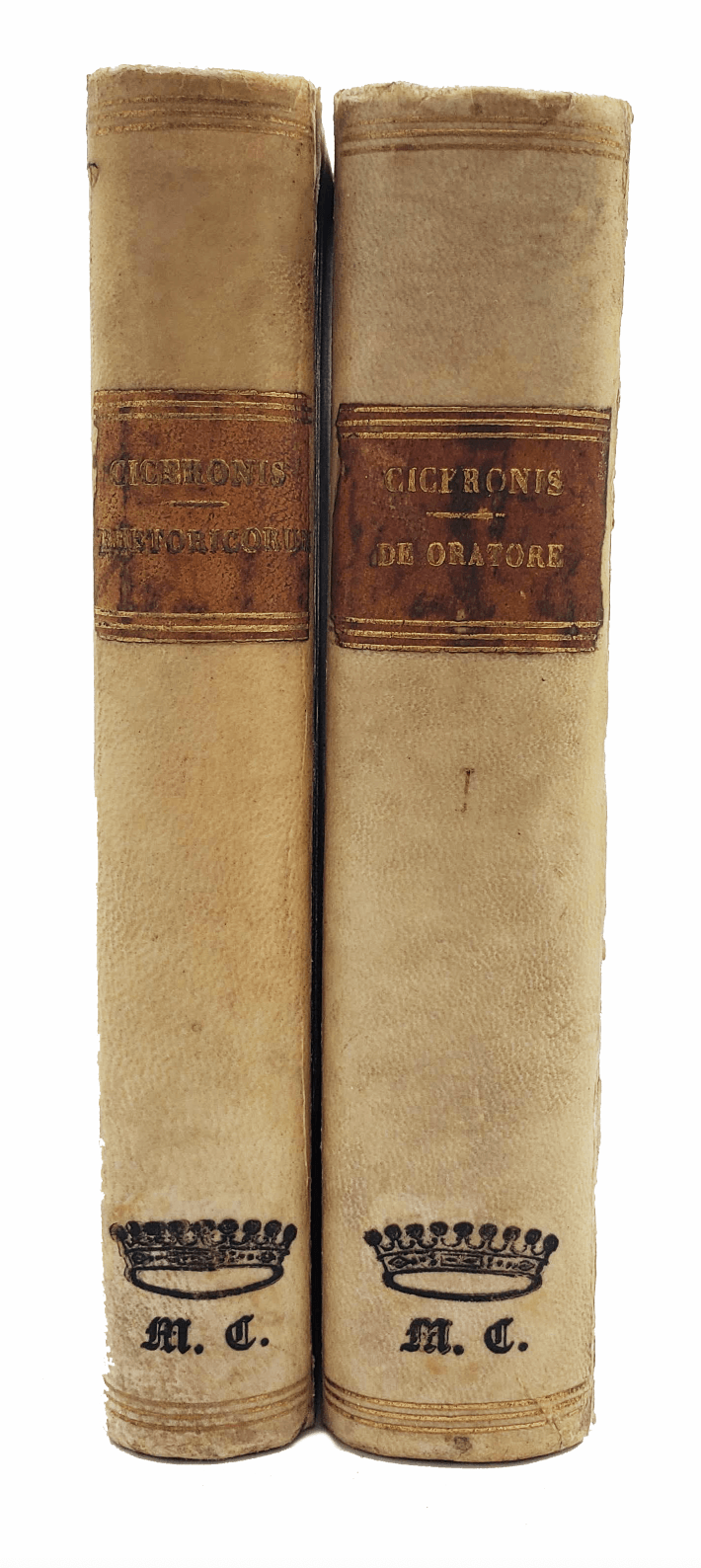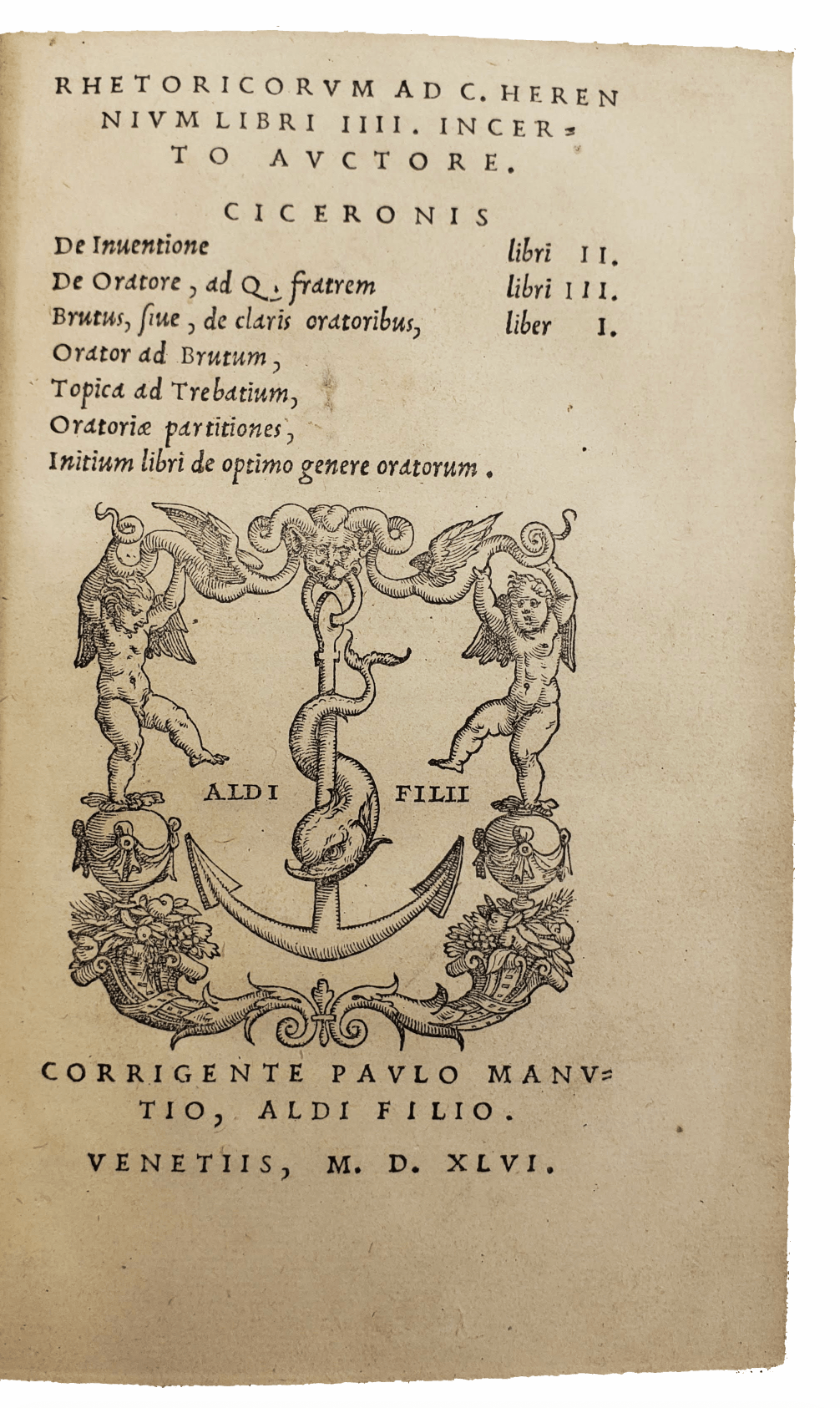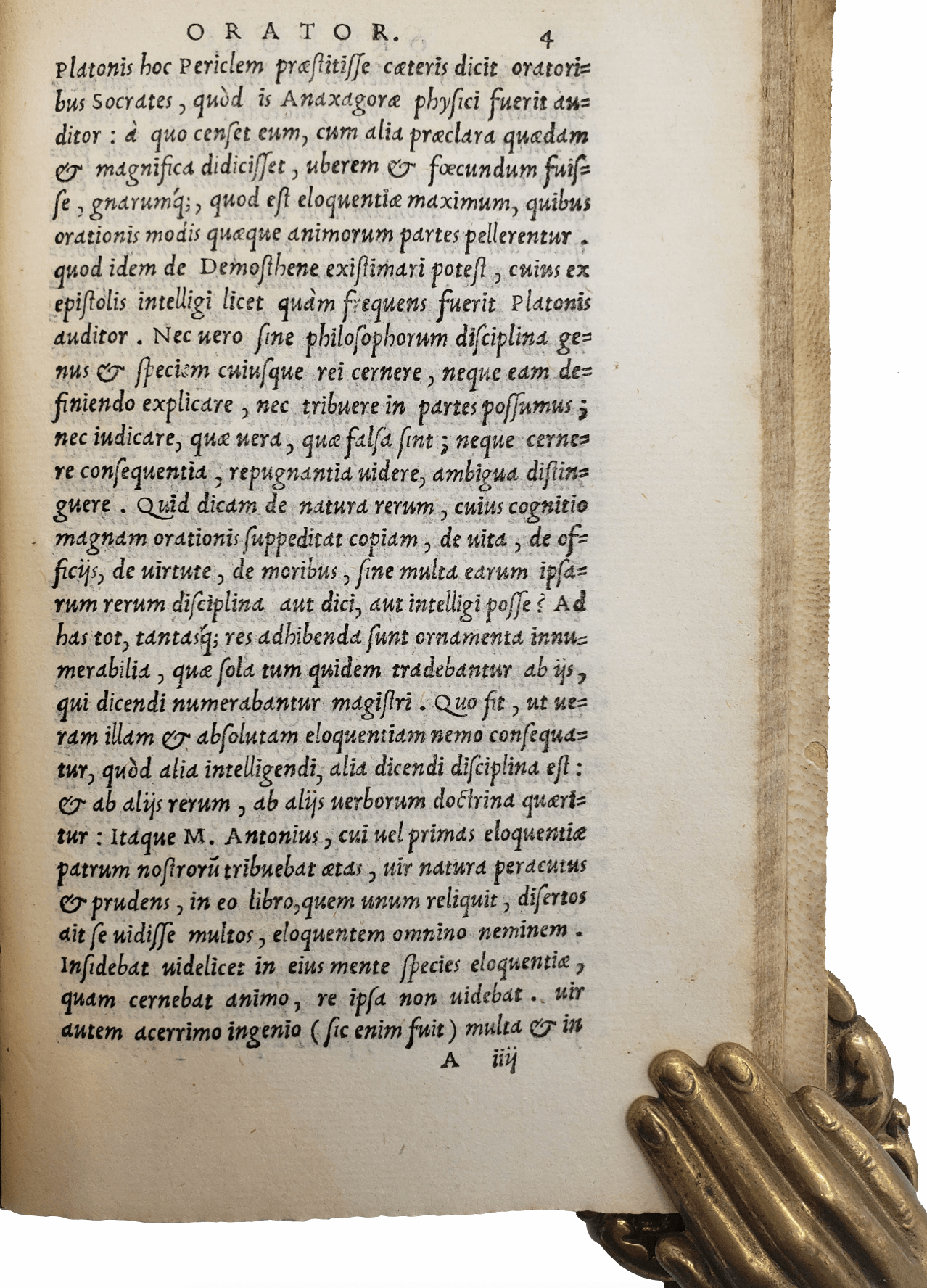CICERO, Marcus Tullius.
ALDINE RHETORIC
Rhetoricorum ad C. Herennium. De Inventione. [with] De Oratore. Brutus. Orator. De optimum genere oratorum.
Venice, [apiud Aldi filios], 1546.£1,250.00
8vo. 2 vols., I: ff. 179, [1]; II: 3 works in 1, separate titles and imprints, ff. 136, [1], 56, 45, [2]. Italic letter, little Roman. Titles and last ll. with Aldine device, decorated initials and ornaments. I: Initial ll. a bit trimmed, light water stain to lower outer corner of final ll. II: intermittent mainly light water stain, more prominent at end. Good copies in late C19 vellum, marbled eps, gilt-lettered label, black-tooled stamp (likely Italian) M.C. surmounted by count’s coronet at foot of spine, upper joint of second cracked but firm.
‘The best Aldine Cicero, and quite rare’ (Brunet), in a uniform set. One of the most influential figures of classical antiquity, Marcus Tullius Cicero (106-43BC) put his legal skills to the service of politics with speeches which became landmarks of forensic oratory. Defined by Quintilian as ‘eloquence itself’, his copious prose production occupied a fundamental place in medieval syllabi. Subsequent to the rediscovery of further texts, including the letters, by scholars like Petrarch, Cicero contributed to forging the Latin style of the Renaissance and its ideas on political theory (e.g., Republicanism), rhetoric (e.g., the principles of argument, eloquence and invention) and philosophy (e.g., Stoicism). The first vol. comprises his greatly influential ‘ad Herennium’, by then presented as probably spurious (‘incerto auctore’), as well as ‘De inventione’ and ‘Topica’ (how to construct arguments in structure and content), and ‘De partitione oratoria’ on oratory techniques. The second vol. begins with ‘De oratore’, an immensely influential analysis of how a good orator should construct persuasive arguments which should however be driven by sound ethical principles. There follow ‘De claris oratoribus’, a history of eloquence through individual figures including Pericles and Solon, and ‘Orator’, a description of the perfect orator integrating observations in previous works. All were edited by Paulus Manutius.
Ahmanson-Murphy 346; Brunet II, 28 (mentioned); Renouard 136:7: ‘elles forment le meilleur Cicérone des Aldes, aussi très rare.’




